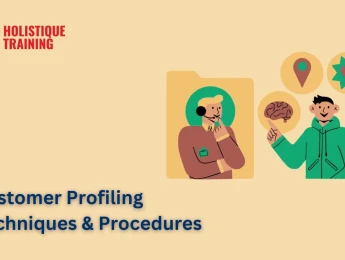If your company produces goods or sells a service to the public, you can’t afford not to be quality-compliant. The quality of your products or service offering ultimately creates trust in your brand, increases your customer retention, and provides excellent customer satisfaction results, which can increase your conversion.
A comprehensive quality assurance procedure and auditing method are essential to ensure your products meet customers’ expectations.
When placing compliance standards for quality control, you must also ensure a quality-focused culture throughout your workforce. Quality in everything you produce is key to moving forward and protecting your future profit margins and business growth.
Upon completion of this course, participants will be able to:
- Design quality control structures and put them into place.
- Conduct regular audits and understand where changes need to be made.
- Develop a quality-first mentality within your workforce.
- Establish clear guidelines and manage underperformance.
- Understand ISO and EFQM guidelines and where your company fits within these.
- Establish your role within a quality control team and understand your responsibilities.
- Uncover root causes and apply problem-solving techniques to achieve positive outcomes.
This training suits anyone involved in the quality assurance process or change management teams. It would be most beneficial for:
- Quality Assurance Officers
- Team Managers
- Directors
- Quality Control Managers
- Change & Control Managers
- Auditors
- Data Analysts
- Document Controllers
- Operations Managers
- Project Managers
- Production Personnel
- Human Resource Managers
This course employs an interactive adult learning approach, integrating practical activities, real case studies, and journey mapping to identify quality issues. Participants engage in group discussions, role-play, and trainer-led questioning to analyze employee performance and refine quality management strategies. Through collaborative problem-solving, they develop actionable plans for sustained improvement.
Day 5 of each course is reserved for a Q&A session, which may occur off-site. For 10-day courses, this also applies to day 10
Section 1: The Quality Management Approach
- Why quality assurance is necessary.
- How quality assurance works.
- Process design and risk management.
- Identifying opportunities within your business.
- Why leadership is essential.
- Lean process development for quality and productivity.
- Cost-benefit analysis.
Section 2: Implementation and Design
- Understand and identify risks.
- ISO9001 and your obligations.
- The PDCA approach.
- EFQM guidelines.
- Customer satisfaction and expectations.
- Planning your changes.
- The 5S model and how this can help.
- Outsourcing benefits.
- Pareto charts.
Section 3: Operational Goals and Adjustments
- Establishing clear goals and expectations.
- Policy writing and document control.
- System development to assist with organisation.
- Six Sigma protocol.
- The value chain.
- Benchmarking and competitor review.
Section 4: Change Management
- Effective delegation and finding the right employees for your vision.
- Communicating change and developing quality monitoring procedures.
- Generating buy-in for quality control.
- Creation of measurement and monitoring processes.
- Roadmap of procedural change.
- Setting SMART objectives.
Section 5: Auditing and Your Quality Assurance Structure
- Monitoring processes.
- Managing products.
- Analysis and reporting data.
- Document and data management and obligations.
- Best practice ISO17022.
Section 6: Performance Monitoring and Employee Adherence
- Data collection.
- Understanding employee priorities.
- Development of a core quality monitoring structure.
- Performance managing - successes and failures.
- Coaching and improvement.
Section 7: Review, Feedback & Moving Forward
- Asking for feedback.
- Audit reporting and presentation.
- Planning for the future.
- Priority map - SWOT analysis.
- 80/20 methodology in practice.
Upon successful completion of this training course, delegates will be awarded a Holistique Training Certificate of Completion. For those who attend and complete the online training course, a Holistique Training e-Certificate will be provided.
Holistique Training Certificates are accredited by the British Assessment Council (BAC) and The CPD Certification Service (CPD), and are certified under ISO 9001, ISO 21001, and ISO 29993 standards.
CPD credits for this course are granted by our Certificates and will be reflected on the Holistique Training Certificate of Completion. In accordance with the standards of The CPD Certification Service, one CPD credit is awarded per hour of course attendance. A maximum of 50 CPD credits can be claimed for any single course we currently offer.
- Course Code PO3-101
- Course Format Classroom, Online,
- Duration 5 days













